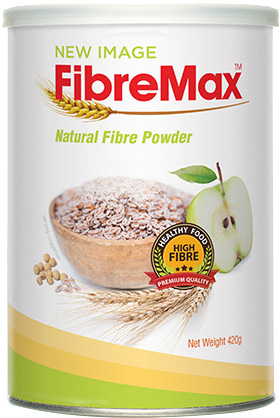Improve Your Gut Health
ColostrumDecember30
With every bite of food you take, you can change your gut flora. But in the modern diet we tend to overfeed the bad guys. To put it simply, ‘bad’ bacteria tend to feed on sugar and unhealthy fats (yes, I’m talking about junk food!). The single most important nutrient that good bacteria need to thrive inside you is fibre.
There are still steps you can take to restore your gut flora:
- Whole plant foods are your bodies main source of fibre
- Vegetables
- Fruit
- Wholegrains
- Beans and legumes
- Nuts and seeds
- Consider taking a probiotic supplement. Try New Image™ Alpha Lipid™ Lifeline™. This delicious shake is designed to support complete upper and lower digestive health.
When you have plenty of fibre your gut can do its job – your digestion, mental function, even your mood will reap the benefits. We’ve talked about increasing the GOOD, but now we also need to eliminate foods that cause inflammation.
- Sugar Excess
- Caffeine
- Processed foods
Today’s "modern diet" tends to be made up of highly processed, high-sugar, high-fat, low-fibre foods. The bad bacteria thrive on these types of foods. Unfortunately, you might be feeding the bad guys (and your taste buds), but you also starve the good, beneficial bacteria too.

Try increasing anti-inflammatory foods
- Omega 3 (fatty fish)
- Fermented foods (prebiotics)
- Foods rich in antioxidants

FibreMax™
Less than 5% of us get the recommended 25-30 grams of fibre per day! We are literally starving the good bacteria!
Fibre contains nutrients, vitamins, minerals and antioxidants. It is part of the plant that your body can’t digest or absorb. So what foods contain fibre? Foods such as vegetables, fruits, grains, beans and legumes are all high in fibre.
There are three different types of fibre:
1. Soluble fibre
- Soluble fibre is as the name suggests ‘soluble’ in water. When mixed with water, it forms a gellike substance and swells. Soluble fibre has many benefits, including balancing blood glucose levels and lowering cholesterol.
What are good sources of soluble fibre? Oats and, legumes (peas, beans, lentils), barley, fruits and vegetables (especially oranges, apples and carrots). Soluble fibre - is soluble in water, eg oats, legumes, fruit and vegetables
2. Insoluble fibre
- Insoluble fibre offers many benefits to intestinal health, including constipation. Most of the insoluble fibres come from the bran layers of cereal grains. Insoluble fibre – doesn’t absorb or dissolve in water. It passes through our digestive system close to its original form
3. Resistant starch
- This fibre is not digested in the small intestine, but the large intestine where it can assist in the production of good bacteria and improve bowel health. Resistant starch is found in undercooked pasta, under-ripe bananas and cooked, cooled potato and rice.
Because we don’t eat enough fibre, Fibremax™ is your detoxing superhero! Fibre is essential for a healthy digestive tract.
It helps remove toxins from the body and encourages good bowel health and energy levels. With other natural ingredients that help maintain healthy glucose levels and weight management, FibreMax™ helps you feel good, healthy and regular.
- One serve provides 40% of your recommended daily fibre.
- 100% natural, supports healthy gut & digestive comfort.
- Blend of soluble and insoluble plant fibres.
- Insoluble fibre cleans your intestines.
- Soluble fibre makes you feel fuller longer.
Benefits of Increased Fibre
- Regularity:Cleans and detoxifies the digestive tract plus regulates glucose.
- Energy:Helps prevent digestive sluggishness, giving you more energy and stamina.
- Regularity:Natural fibre, vitamins, minerals & proteins.



